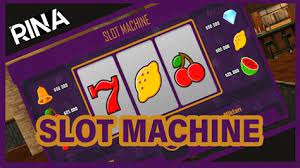- Slot Machines: Spinning Luck into Excitement
- The Fascinating World of Slot Games: History, Evolution, and Modern Trends
- Slot Games: From Mechanical Reels to Digital Entertainment Powerhouses
- Slot Games: History, Evolution, and the Thrill of Chance
- The Fascinating World of Slot Games: History, Evolution, and Modern Appeal
The World of Casinos: Entertainment, Economics, and Regulation

Casinos have long been a staple of entertainment and leisure, ufo777 link alternatif offering a blend of excitement, chance, and glamour. From the opulent floors of Monte Carlo to the vibrant lights of Las Vegas, casinos captivate millions with their promise of fortune and fun. But beyond the glitz and glam, there’s a rich tapestry of economics, regulation, and cultural impact that defines the casino industry.
The Evolution of Casinos
Casinos have a storied history, evolving from ancient gaming houses to the sophisticated resorts of today. The earliest evidence of gambling dates back to ancient China, where tiles from around 2300 B.C. were used in a game of chance. Over the centuries, gambling spread across cultures and continents, each adding their own twist to the games.
Modern casinos began to take shape in the 17th century in Italy, with the first known casino, the Ridotto, opening in Venice in 1638. The concept spread to France, where it became associated with high society. In the 20th century, casinos proliferated across the globe, particularly in the United States, where Las Vegas emerged as the epicenter of casino entertainment.
The Casino Experience
Casinos offer a wide array of games, from classic table games like poker, blackjack, and roulette to an ever-expanding selection of slot machines and electronic gaming. The thrill of chance and strategy is a major draw, but casinos also provide luxurious accommodations, fine dining, and live entertainment, creating a comprehensive leisure experience.
In addition to traditional casino games, many modern casinos feature a range of amenities, including shopping, spas, and even theme parks. This diversification helps attract a broad audience and encourages longer stays and increased spending.
Economic Impact
Casinos have a significant economic impact on their local communities and beyond. They generate substantial revenue through gaming, hospitality, and ancillary services. This revenue can boost local economies by creating jobs, supporting local businesses, and contributing to tax revenues.
However, the economic benefits must be weighed against potential social costs. Gambling addiction and its related problems can have severe consequences for individuals and communities. Responsible gambling practices and support services are crucial to mitigating these risks.
Regulation and Legal Issues
The casino industry is heavily regulated to ensure fairness, prevent fraud, and protect players. Regulations vary widely from one jurisdiction to another. In many places, casinos must adhere to strict guidelines regarding game integrity, security, and responsible gambling measures.
In the United States, for example, the casino industry is regulated at both the state and federal levels. States like Nevada and New Jersey have established comprehensive regulatory frameworks, while other states are gradually introducing or expanding casino operations, each with its own set of rules and oversight mechanisms.
The Future of Casinos
The casino industry continues to evolve, driven by technological advancements and changing consumer preferences. Online casinos and mobile gaming are reshaping the landscape, offering new ways for people to engage with casino games from the comfort of their homes.
Virtual reality (VR) and augmented reality (AR) are also beginning to make their mark, providing immersive gaming experiences that blend the virtual and physical worlds. As technology progresses, the casino experience is likely to become even more dynamic and interactive.
Conclusion
Casinos remain a fascinating blend of entertainment, risk, and reward. They offer more than just a place to gamble; they provide a full-spectrum leisure experience that continues to evolve with changing trends and technologies. As the industry adapts and grows, its impact on the economy, culture, and individual lives will undoubtedly continue to be a topic of interest and discussion.
